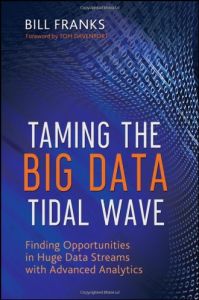Analytics expert Bill Franks argues that the onslaught of “big data,” the flood of information that is sweeping over every business, might be overwhelming. He’s clear that big data’s new and varied formats may seem strange to users, a complication that makes analysis difficult. Franks provides conceptual tools and examples readers can use to get the most from the ever-increasing data supply. Laypeople may find his text somewhat dry and his subject matter complex and specialized, but they are not this author’s primary audience. getAbstract recommends his smart manual to executives trying to formulate analysis and knowledge management programs, analysts themselves, and those interested in how technology changes business.
The Evolution of “Big Data”
Nothing will shape “advanced analytics” in the future as much “as the ongoing explosion of new and powerful data sources,” or big data. These new data sources have an inherent set of qualities that define them in relation to “traditional data sources.” Big data is faster, more complex and more varied than traditional data. While decision makers and record keepers generated traditional data, machines generally produce big data, which uses information technology, processing capacity and artificial memory. To leverage big data, you must sift the useful information from the trash. Big data is useful only when combined with traditional data and applied analysis.
Traditional data was structured. Most big data is unstructured or “semistructured.” To reap the benefits of this information, you must learn the logic of semistructured data and impose structure on unstructured data. As machines capture more data, companies should safeguard their data stores and be ethical about how they gather and use information. Your firm should practice self-regulation. If you capture too much data too quickly, costs may outpace benefits, and you won’t know what to...


















Comment on this summary